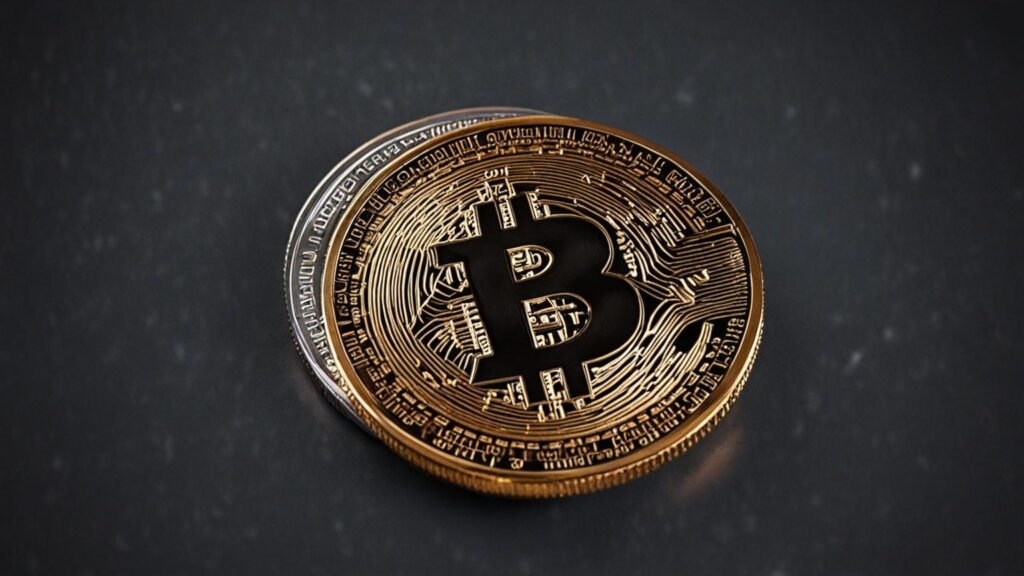Since its inception, Bitcoin has been derided as dead, worthless, or a scam, in part because its value often rises and falls rapidly. While the price of Bitcoin reached $60,000 in 2021 and fell to about $17,000 in 2022, many experts and investors said that Bitcoin could not escape the uptrend.
But it did, and one of the all-time highs was reached in early 2024. This gives some of the world’s largest asset managers, such as Fidelity and BlackRock, a way to offer their clients the ability to use Bitcoin, making it easier for clients to hold it in accounts such as IRAs and tax-deductible accounts at a Bitcoin brokerage.

But there are other factors that cause the price of Bitcoin to rise in 2024. The so-called “Bitcoin halving” occurs every four years. The last halving took place in April 2024 and mining rewards dropped from 6.25 to 3.125. The expectation that less Bitcoin will enter the market pushes the price even higher.
Moreover, the impact of the interest rate increase on the growth of the market in 2022 may have a similar effect on Bitcoin; However, as rumors of a price cut in 2024 continue, some investors may have become more interested in assets such as Bitcoin, causing them to immediately reinvest.
Finally, there are still some Bitcoin lovers who argue that looking at Bitcoin in terms of fiat currencies such as the US dollar or British pound misses its true value as a new financial instrument. If there’s one thing that can be predicted about Bitcoin, it’s that it will continue to change. In the short term, two camps are likely to form: Bitcoin will rise and Bitcoin will fall. But now it looks like Bitcoin bulls are winning.
- Pioneering role in the field of cryptocurrency
Bitcoin is the world’s first decentralized digital currency. Its creation marked apivotal point in fintech and introduced the world to the concept of transparent, immutable blockchain. This innovation laid the foundation for thousands of cryptocurrencies that followed. - Decentralization and security
One of the principles of Bitcoin is decentralization. Unlike traditional currencies that are controlled by governments or financial institutions, Bitcoin operates on a global network of computers (nodes). This decentralized nature:
Enhanced security: Transactions are protected by encryption algorithms, making them resistant to fraud and hacker attacks.
Reduce dependence on intermediaries: Users can do business directly with each other without the need for intermediaries such as banks, allowing transactions to be carried out faster and cheaper. - Limited supply and store of value
The Bitcoin protocol aims to limit its total supply to 21 million coins. This scarcity is programmed into the blockchain, and over time, the value of newly mined Bitcoins gradually decreases. This product is limited to:
• Intrinsic value: Similar to precious metals such as gold, Bitcoin is often referred to as “digital gold” due to its rarity and intrinsic value.
• Hedge against inflation: In regions with high inflation or economic uncertainty, Bitcoin can serve as a hedge against devaluation of fiat currencies.
- Global acceptance and accessibility
The Bitcoin space is further valued for its widespread acceptance and accessibility:
• Global reach: Bitcoin can be used for global transactions; It provides unlimited payments and financial inclusion for individuals who do not have access to always-there banking services.
• Accepted by merchants: More and more merchants, from small businesses to large corporations, are accepting Bitcoin as a payment method, increasing its usefulness in daily business. - Increasing Institutional Interest
In recent years, Bitcoin has been increasingly adopted by commercial and financial institutions:
• Capital investment: Companies view Bitcoin as a legitimate asset, diversify their portfolios and seek positive returns.
• Developments: The development of cryptocurrency exchange management, tracking solutions, and financial products such as Bitcoin futures have helped boost the Bitcoin market.
Conclusion
Bitcoin’s enduring popularity can be attributed to its pioneering role as a cryptocurrency, decentralization, security features, restrictions, international recognition, interest in the organization, the community is strong, strong and continues to thrive.
As the cryptocurrency landscape evolves, Bitcoin remains at the forefront, shaping the future of digital finance and continuing to inspire confidence among users, investors and global innovators.
Its influence extends beyond financial markets, influencing debates about economic freedom, digital governance and the development of the global financial system.








